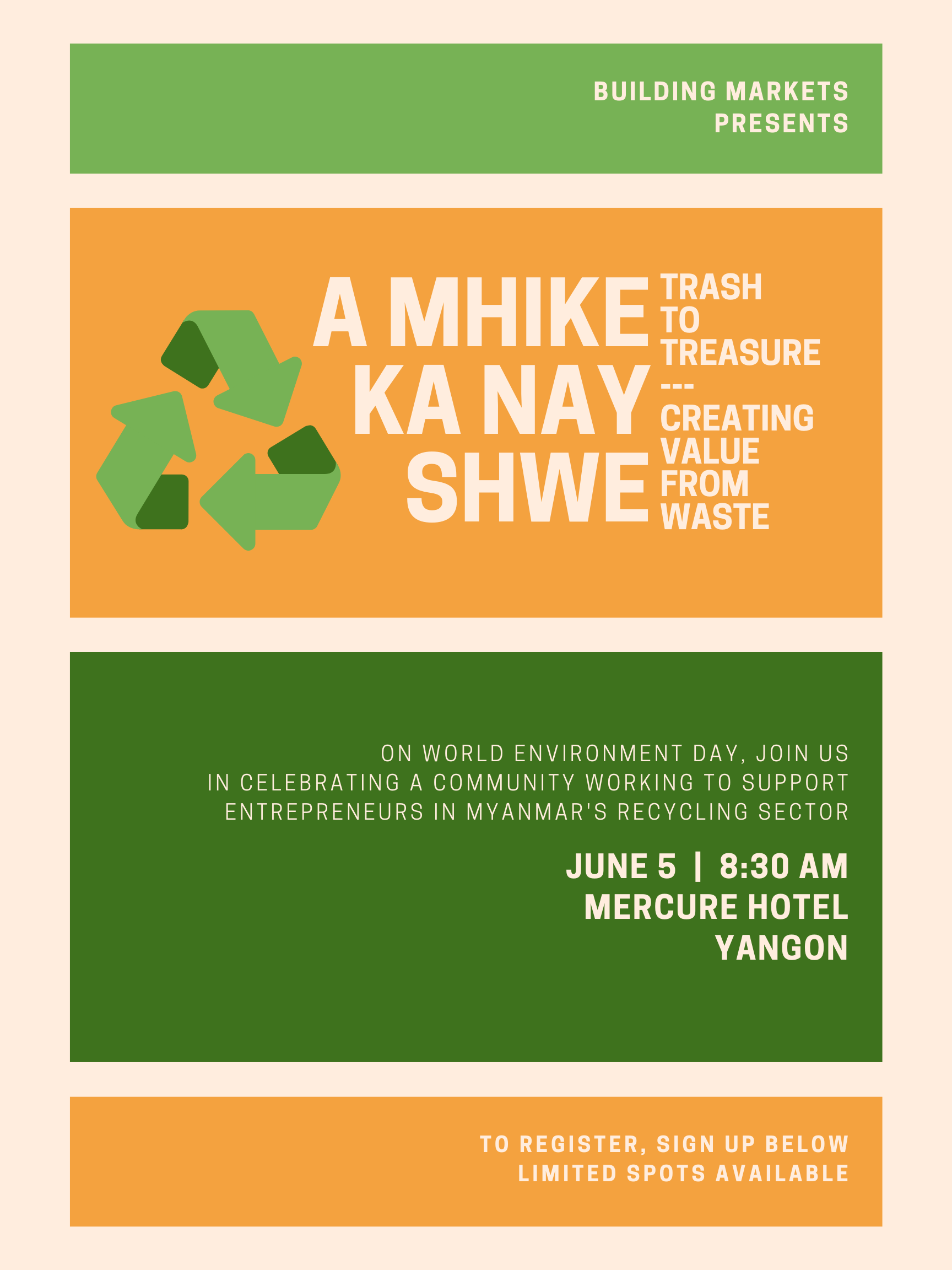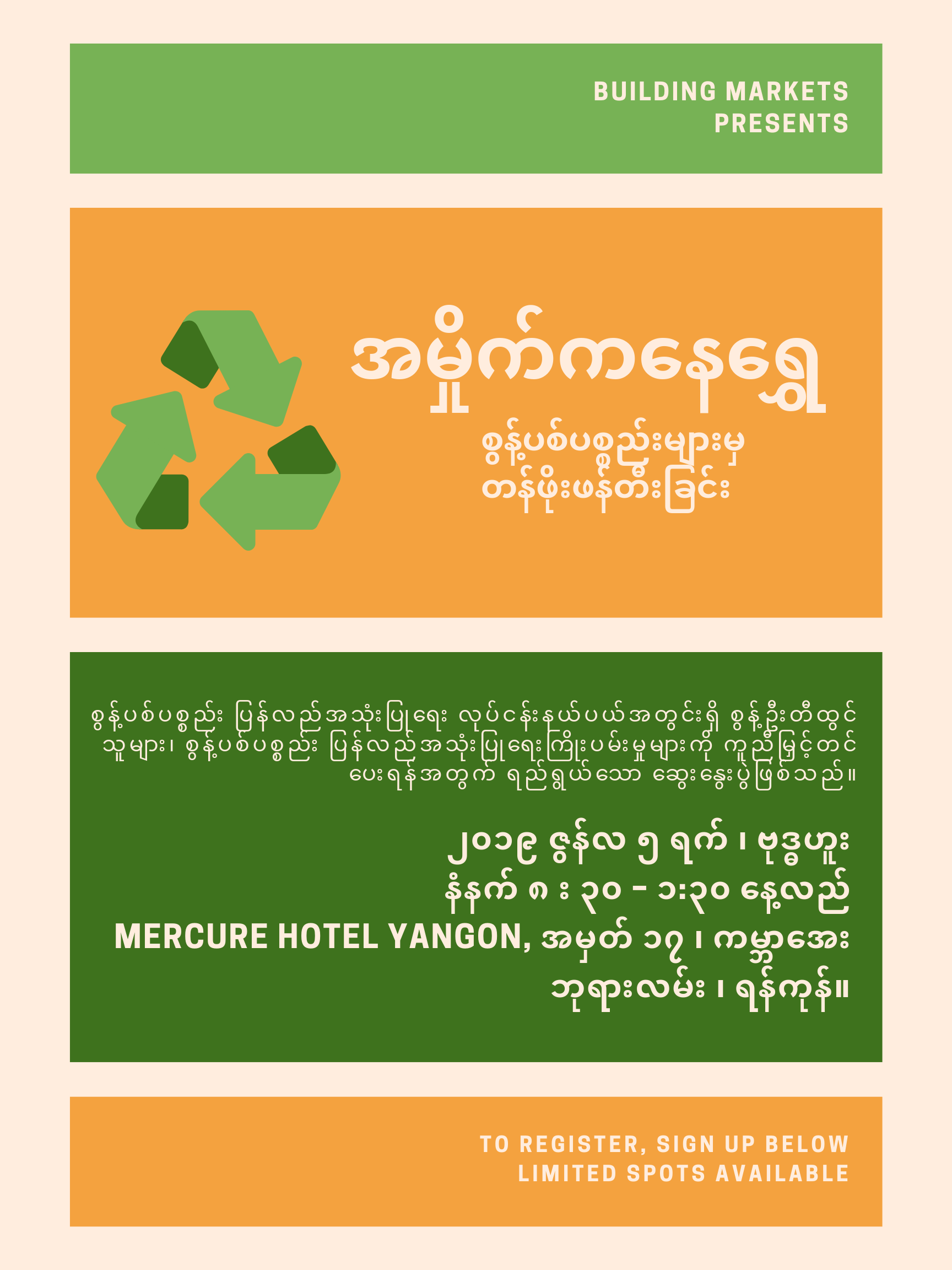Creating Value from Waste
In August 2019, a group of prominent business executives publicly stuck it to Milton Friedman, adding their voices to a growing drumbeat that acknowledged the failure of shareholder primacy as an ideology, and advocating for a new era of shared prosperity: for customers, employees, suppliers, communities and stakeholders.
In a world mired by growing environmental and social concerns, will this herald the era of the purposeful corporation, or is it another instance of corporate ‘greenwashing’?
Considering the complexity of global supply chains alone, many large corporations have benefitted enormously from inequalities within the global economic system that have allowed them to keep costs low by outsourcing operations to countries in the global south, despite known negative impacts.
Take Myanmar, for example. Prior to the coup in 2021, the country attracted a lot of foreign investment on account of its natural resources, young workforce, and rapid urbanization. This period of rapid growth has contributed to a massive waste problem as plastic chokes waterways, crowds landfills, and isn’t going anywhere - China imposed a ban on importing foreign recyclables in 2018 and very few foreign companies have taken steps to mitigate the harmful environmental impact of their operations in the country.
Design Challenge // How might we seek and nurture local approaches that transform Myanmar’s waste and recycling value chain from one that is linear (take-make-waste) to one that is circular (take-make-take-make) and ultimately, more sustainable?
Clients // Private Foundation, Global nonprofit
Project // Research, prototyping, service design & launch for an initiative supporting small businesses in Myanmar’s waste and recycling sector.
Role // Project Lead
Outcome // I led a team that was challenged to research, design and launch a pilot initiative that was the first of its kind in Myanmar. Understanding the complexity of the country’s waste problem, we designed a program strategy that ambitiously sought to work with all stakeholders across the waste and recycling value chain instead of narrowly focusing on the private sector alone.
Through events, collaborative workshops, peer mentorship, community outreach and engagement, this project brought local nonprofits, municipal governments, local businesses and communities together, giving them a voice and seat at the table where they had previously been unseen and unheard.
The results have been positive in improving coordination, labour, safety, health standards and work conditions, reducing contamination of recyclable material, improving segregation at source, and ultimately reducing waste.
In 2020, following a successful pilot, the project was extended for an additional three year period.
Duration of Engagement // 2018 - 2020
Acknowledgements //
Project Team: Karen Hsu, Nay Linn Oo, Naing Zaw Myo, Aung Kyaw Zin, Aye Chan Moe, Wah Wah Cho
Images: Digital flyers for a zero-waste event on World Environment Day in June


